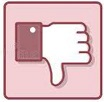Review Cesare Borgia In others, abruzzi, italy | Public Figure In Others
Only 50% People Answered Yes For the Poll
Cesare Borgia
Others,
Abruzzi,Italy - 0
Detailed description is (1475-1507) Duke of Valentinois, Italian Renaissance politician and military leader, member of the Borja or Borgia family of Spanish origin..
Established in the recent years Cesare Borgia in others , abruzzi in italy.
This is a well known establihment acts as one-stop destination servicing customers both local and from other of the city.
Over the course of its journey , this business has establihed a firm hold in the [category].
The belief that customer satisfaction is an important as it products and services , have helped this establihment garner a vast base of customers and continue to grow day by day
Foods is provided with high quality and are pretty much the highlight in all the events in our lives.
Sweets and food are the ideal combination for any foodies to try and this Cesare Borgia is famous for the same.
This has helped them build up a loyal customer base.
They have started a long journey and ever since they have ensure the customer base remains the same and growing month on month.
As they are located in favourable location , becomes the most wanted space for the tourist.
For any kind and assistance , it is better to contact them directly during their business hours.
Premises has a wide parking area and need to avail special permissions for parking.
Pets inside the premises are not allowed and require additional permission.
Cashless payments are available and extra charges for the credit cards are levid.
They are listed in many of the food delivery networks for home delivery with appropriate charges.
They accept cards , cash and other modes of payments
Tips are not actually encouraged but customers are willing to offer any benefit as needed.
There you can find the answers of the questions asked by some of our users about this property.
This business employs inviduals that are dedicated towards their respective roles and put in a lot of effort to achieve the common vision and goals.
It is a effortless task in communiting to this establishment as there are various modes available to reach this location.
The establishment has flexible working timings for the employees and has good hygene maintained at all times.
They support bulk and party orders to support customers of all needs.
Keywords List :
Public figure in italyPublic figure in abruzziPublic figure in othersPublic figure in 01475 births1507 deathsHouse of borgia cesarePoliticians from romeUniversity of perugia alumniUniversity of pisa alumniDukes of urbino16th century italian cardinalsCardinals created by pope alexander viBishops of elnaPrinces of the papal statesArchbishops of valenciaDukes of valentinois16th century condottieriCardinal nephewsIllegitimate children of pope alexander vi15th century roman catholic archbishops in the kingdom of aragonLords of riminiCaptains general of the churchClergy from romeMilitary personnel from romeLords of pesaroLords of faenza15th century italian cardinalsCesare borgiaCesare borgia othersCesare borgia
Frequently Asked Questions About This Location

